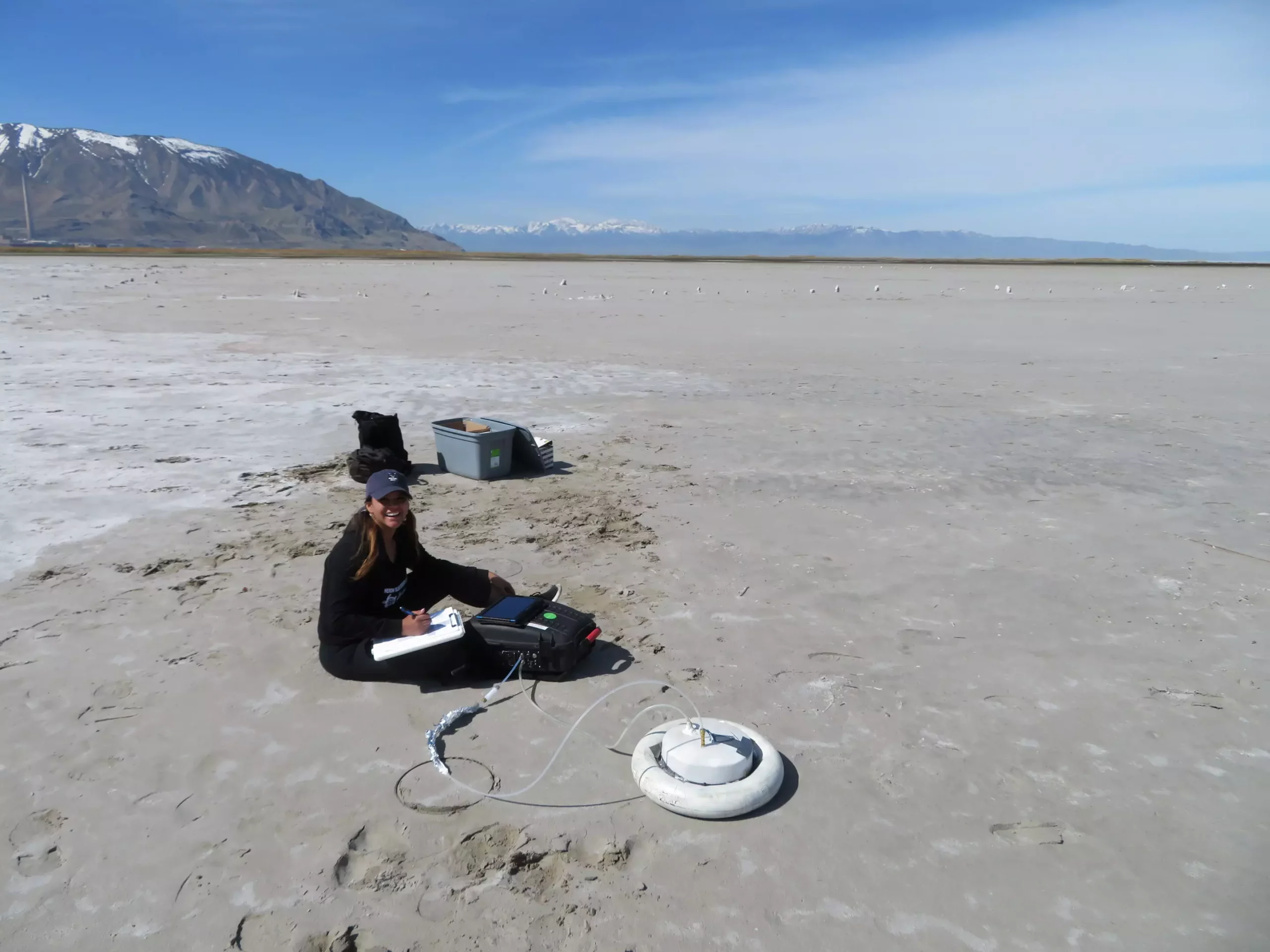

The Great Salt Lake, the largest saline lake in the western hemisphere, has long been a subject of intrigue amongst environmentalists and researchers alike. However, recent research published by the Royal Ontario Museum (ROM) has shattered preconceived notions about this vast body of water’s contributions to greenhouse gas emissions. It has emerged that the lake bed, when exposed due to increasingly severe desiccation, becomes an unexpected reservoir of greenhouse gas emissions. This revelation is not just an environmental curiosity; it signifies a critical phenomenon that demands urgent attention and action in light of ongoing climate change.
Soren Brothers, an esteemed curator and lead researcher of the study, encapsulated the findings in stark terms. He stated unequivocally that the human-induced drying of the Great Salt Lake has triggered the release of substantial volumes of greenhouse gases—approximately 4.1 million tons in 2020 alone. This startling figure should prompt a recalibration of how we conceptualize climate change drivers, as the previously overlooked drying lake beds potentially become significant contributors to global warming.
The dynamics of water levels in the Great Salt Lake are not a one-dimensional story. Variable factors such as annual snowmelt and historical rainfall play a role, but human activities have accelerated the depletion of this natural resource. Increased demands from agriculture, industry, and urban consumption have increasingly siphoned off water, wreaking havoc on the lake’s ecosystem. While variations in water levels are natural, it is the relentless human consumption that is tipping this ecological balance into critical territory.
The implications are not just local but extend globally. As iconic saline lakes around the world—such as the Aral Sea and Lake Urmia—face similar fates, the repercussions extend far beyond diminished water sources; they threaten biodiversity and even air quality, which can adversely affect human health. Perhaps more alarmingly, the exposure of lake sediments to the atmosphere facilitates the release of potent greenhouse gases like carbon dioxide and methane. What the research indicates is clear: it’s not just water we are losing; we are unintentionally unleashing a recipe for climate catastrophe on a global scale.
The methodology employed by the research team is robust and reveals the urgent need to reconsider our approach to mitigating climate change. By assessing greenhouse gas emissions from the dried sediment of the Great Salt Lake over several months, the researchers provided concrete data that implies a shocking 7% increase in Utah’s anthropogenic greenhouse gas emissions due to the lake’s desiccation alone. The potent dynamics between temperature and emissions accentuate that this is not merely a matter of observation; it is a call to arms for ambitious climate policy reform.
Notably, the research detailed that while carbon dioxide constituted a significant majority of the emissions, methane—28 times more effective at trapping heat than carbon dioxide—exerts a substantial influence on overall warming potential, which necessitates a recalibrated understanding of greenhouse gas contributions.
What the study has done is identify desiccation of lake beds as an emergent and critical factor in our understanding of climate change. This concept should reverberate through policy circles, urging stakeholders to adapt their frameworks of watershed planning and greenhouse gas mitigation to include these newly recognized sources. Ignoring the implications of lakebed emissions may lead us to tragically underestimate the full scope of human-induced climate change.
As the arid regions of our planet continue to suffer from drought, the interplay between declining water bodies and climate change forms precarious feedback loops that could spiral out of control. The research’s findings challenge conventional wisdom by providing fresh insights into how increasing temperatures directly correspond to heightened greenhouse gas emissions from these newly desiccated landscapes.
In essence, not only is the Great Salt Lake serving as a critical bellwether for climate trends, but it also serves as a crucial indicator of the perils that lie ahead if current consumption patterns continue unbounded. The need for conscientious water management and sustainable practices has never been more urgent and may well determine the resilience of ecosystems globally.
The evolving narrative surrounding the Great Salt Lake is a sobering reminder that the consequences of human actions extend far beyond immediate satisfaction. As we engage in discussions around climate change solutions, integrating the insights derived from new research findings like those from ROM will be indispensable in formulating effective strategies to mitigate one of the most pressing challenges of our time.
Nitrogen, a fundamental element found in various forms, plays a crucial role in both agricultural…
For centuries, humans have been captivated by the enigma of chaotic systems, from the tumultuous…
The proliferation of synthetic polymers, particularly since the 1950s, has ushered in a double-edged sword.…
In a revealing study, researchers have turned their attention to an everyday indulgence: chewing gum.…
Neptune, the enigmatic azure giant of our Solar System, has long tantalized astronomers with its…
In an era where environmental degradation and climate change are pressing concerns, the quest for…
This website uses cookies.